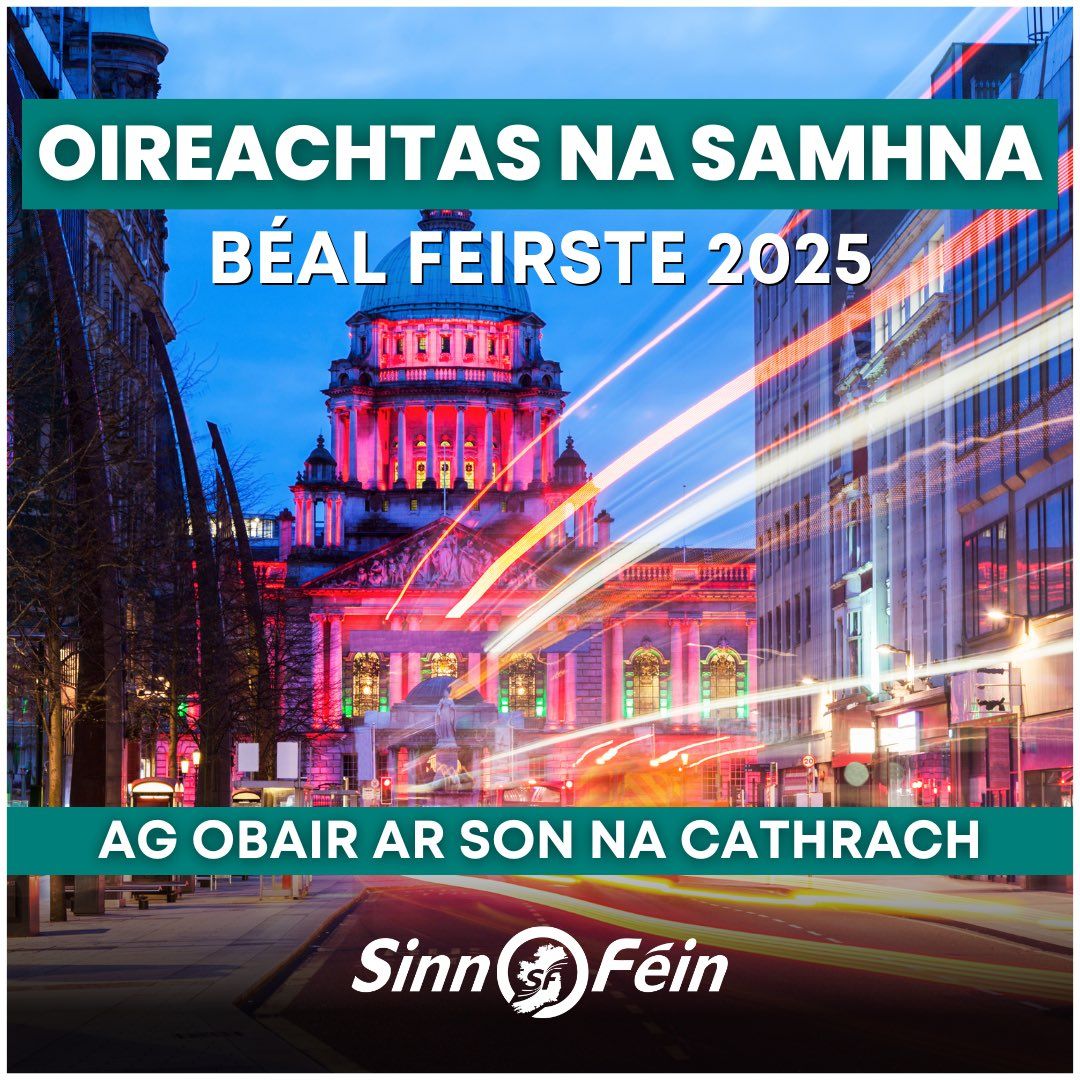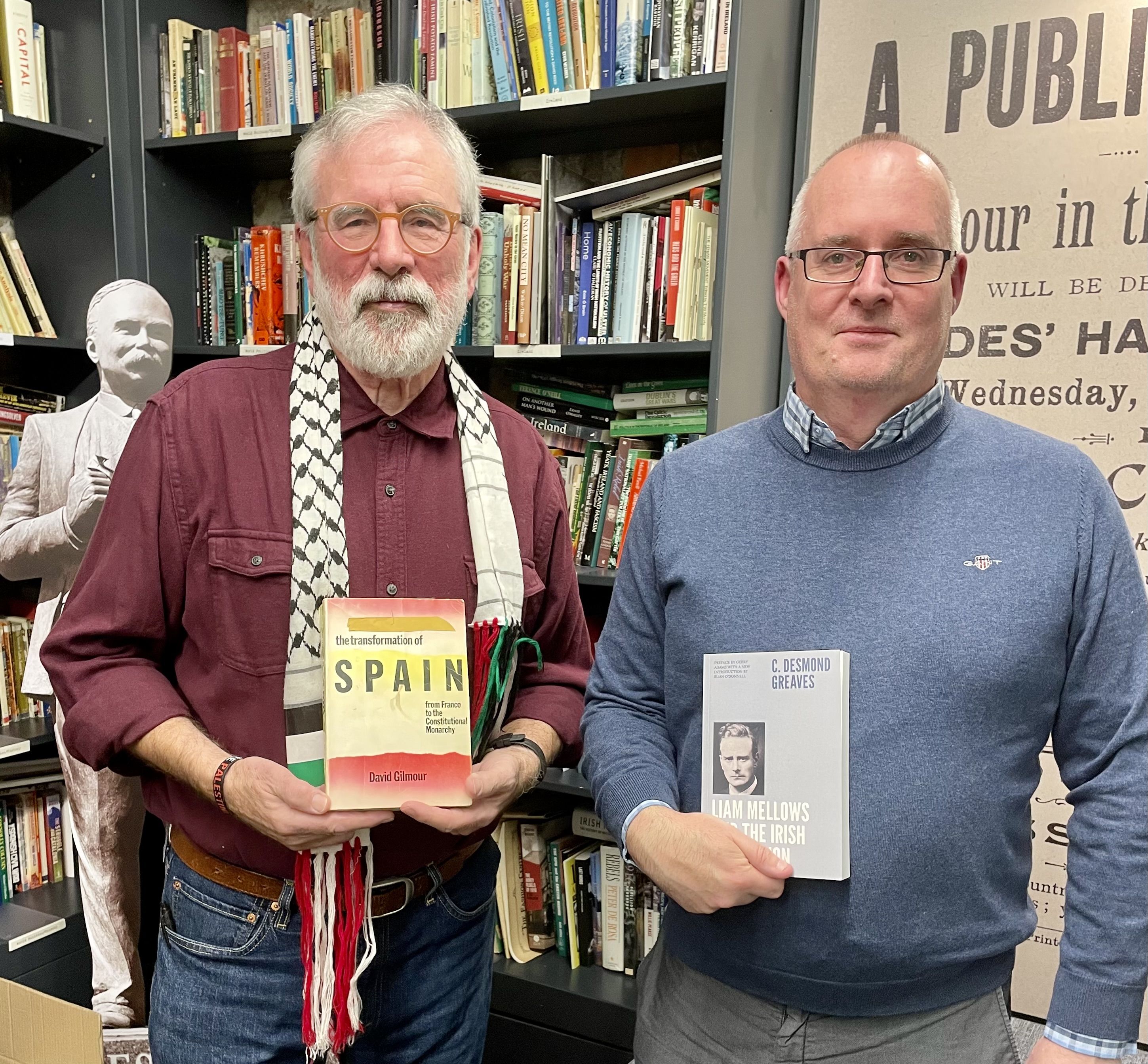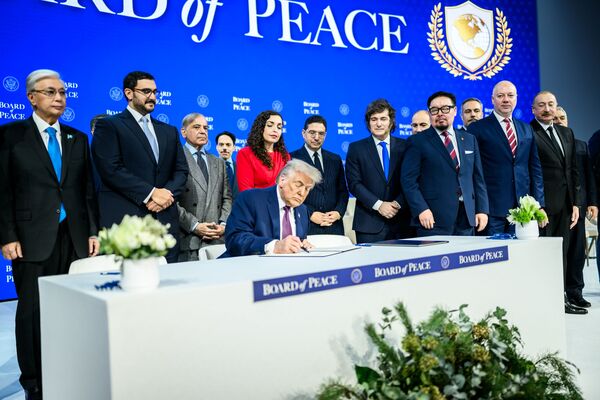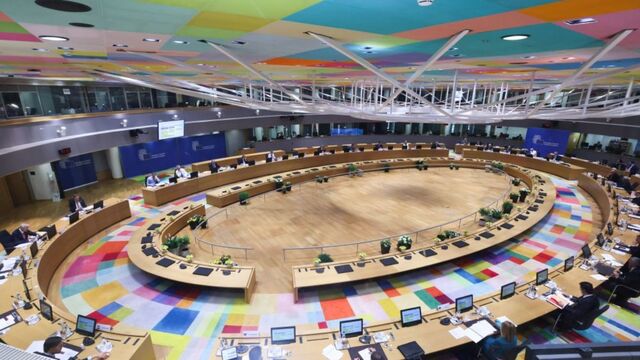I WAS very pleased to speak at the launch in Áras Uí Chonghaile of the latest edition of Desmond Greaves’ wonderful book, ‘Liam Mellows and the Irish Revolution’. Dr Ruan O’Donnell, a Senior Lecturer in History, was instrumental in updating the book. Present also were Anthony and Muriel Coughlan. Anthony is Desmond Greaves’ literary executor. He is owed a debt of gratitude for his lifelong work on many issues, but especially the work of collating Desmond’s writings.
I first read this book while in Cage 11 of Long Kesh. At that time, we formed a little book club and got in touch with Joe Clarke, who ran the Irish Book Bureau in Dublin. Joe was a veteran of 1916. He was a survivor of the Mount Street ambush in April 1916 in which he and 12 other IRA volunteers held two thousand British soldiers at bay as they marched into Dublin from Dún Laoghaire.
The small force of republicans held the bridge for a day, during which they wounded 250 British soldiers and killed 28 others. Four IRA Volunteers were killed. Joe was captured. He remained active up until his death in 1976. We asked Joe to send us some books. We also got in touch with the Connolly Association in London and they also sent us many books, including the Liam Mellows one. This book was stopped by the prison censor. However, we thwarted that by putting a false cover on it and got it sent back in. I still have it and brought it along to the Áras event. The fabricated cover is entitled, ‘The Transformation of Spain – from Franco to the Constitutional Monarchy’. The rest of the book is Liam Mellows, which proves, if nothing else, they didn’t read it.
I was very influenced by Desmond Greaves. He was a prolific writer whose works included a biography of James Connolly. He was also editor of the Connolly Association’s monthly paper, The Irish Democrat.
Liam Mellows in my view is one of the most important of our leaders. He was executed by the Free State along with Joe McKelvey, Dick Barrett and Rory O’Connor in January 1922. The Greaves book is the story of the Irish Revolution. It is about a man who was cut from the same cloth as James Connolly. As part of our Cage 11 discussions we got the Treaty Debates from the government publishing office in Dublin and discussed them thoroughly. Mellows’ contribution to those debates, his notes from Mountjoy give a clear insight into his understanding of the needs of the republican struggle, of the importance of understanding imperialism and how it manifests itself, and his clear class analysis of the forces ranged against Irish republicanism.
If anyone is looking for a rationale for the behaviour of the Dublin establishment’s refusal historically to face up to British governments from WT Cosgrave to Micheál Martin, you will find it in Mellows speech during the Treaty debates. Liam Mellows’ words on January 4, 1922, are prophetic:
“If this Free State comes into existence... men will get into positions, men will hold power, and men who get into positions and hold power will desire to remain undisturbed and will not want to be removed, or will not take a step that will mean removal in case of failure...”
So this is a very important book. Well done to all involved with it. There are other similar books that need to be republished that give an anti-imperialist analysis of our recent history and of our right to be free and how we might achieve that.
One of the people who was with us in Cage 11 and who understood what Connolly and Mellows were about, and understood this concept of the re-conquest of Ireland by the Irish people, was Bobby Sands.
And Bobby expresses that in his writings. But one particular piece, which he wrote on the last day of his hunger strike diary – March 17, 1981 – sums it up:
“If they aren’t able to destroy the desire for freedom, they won’t break you. They won’t break me because the desire for freedom, and the freedom of the Irish people, is in my heart. The day will dawn when all the people of Ireland will have the desire for freedom to show. It is then we’ll see the rising of the moon.”
That’s what we have to do. Those of us who are trying to bring about change, in the tradition and spirit of Mellows, need to learn that lesson. It’s all about working with other people. It’s all about forming coalitions. It’s all about alliances. It’s all about the people, not a small group, but the people assuming and taking power and building struggle in ways that suit them. The campaign for Catherine Connolly is a good example of this.
Liam Mellows and the Irish Revolution is available through Lawrence and Wishart at lwbooks.co.uk and at An Fhuiseog, 55 Bóthar na bhFál, BT12 4PD.
Looking forward to some autumn fun
OIREACHTAS na Samhna is coming to Belfast. The oldest Irish language festival in the country celebrates an Ghaeilge, sean-nós music, dance, literature, recitation and even rap music – a sign of the times! Thousands of Gaeilgeoirí – families, children, young people and some older folk too – will gather in Belfast where the Oireachtas is being held for the first time since 1997.
There will be lots of events, including competitions, book launches, conversations, live broadcasts and debates – all completely as Gaeilge.

Sinn Féin’s Commission on the Future of Ireland will host a debate on ‘Ról na nGael i dTógáil Éire Nua – The Role of Gaels in Building a new Ireland’ and Coiste na n-Iarchimí is hosting a panel discussion on ‘Ról na Gaeilge i bPríosún na Ceise Fada – The Role of the Irish Language in Long Kesh’. Both events will take place on Friday, October 31 at 11am and 1pm respectively, and will be held completely in Irish.
When I think of my own journey in learning Gaeilge, from St Mary’s Grammar School to the Donegal Gaeltacht and the Cages of Long Kesh in the 1970s, compared to the journey of my grandchildren, whose first language is Gaeilge and who thrive in Irish-medium education and youth clubs and sports clubs, it reminds me of the huge changes we have seen in recent decades.
It’s incredible to see that reflected in our city – a richness, a diversity, a saibhreas of culture and language, be that the positive step forward that Belfast City Council took to implement a new progressive Irish language policy, or the Fleadh coming to Béal Feirste next year, or thousands of Gaeilgeoirí from across the country gathering in our city this Halloween for Oireachtas na Samhna.
As the song goes, The times they are a-changin’. Agus nach maith sin?
Oireachtas na Samhna will take place from October 29 to November 2.
More info can be found at antoireachtas.ie
Palestinians must not be sidelined
A POPULATION greater than that of Belfast has been moving back to the northern Gaza Strip following the ceasefire announcement last week.
Awaiting them is utter destruction. The infrastructure of Gaza has been levelled by the Israeli state’s genocide. The return of the Gazans is based on hope. Hope that humanitarian aid will arrive. Hope that the indiscriminate bombing by Israel and the deliberate slaughter of desperate, starving people at aid stations has stopped. Hope that the big powers – which have allowed this holocaust to go on for two years – will ensure that this is a meaningful end to the war.
Much of the detail of the agreement between Israel and Hamas is still not known. What we have seen is vague and ambiguous. Sometimes in negotiations this is necessary to create the space needed for progress to be made. But progress also demands meaningful and positive momentum. A ceasefire is but a first step. An inclusive process is urgently needed. If it is to succeed it must involve everyone and exclude no-one.
The Palestinian people have too often been sidelined by the governments. Their voices ignored. Their representatives demonised and barred from negotiations. That cannot happen again. The Palestinian people through their various organisaitons must be included as equals in this process.
They must be front and centre. They must have the right to self-government and to self-determination.








